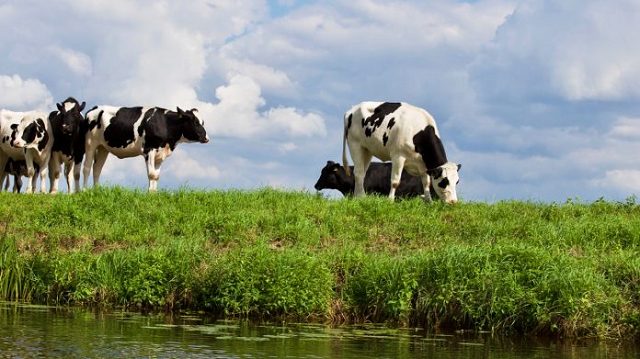The Federal Government Of Nigeria has approved 119 ranches to be constructed under the National Livestock Transformation Plan(NLTP) in various states across the country between 2019 and 2028.
In the NLTP 2019-2028 document approved by the National Economic Council and obtained in Abuja on Friday, the Federal Government stated that 300,000 jobs would be created in the first three years, described as phase one.
It said, “In the pilot period, there will be two pilot sites per state, consisting of four ranches per site. Overall, seven breeder ranches, 56 ranches, and seven semen banks are initially envisaged among the seven pilot states.
“Between 150,000 – 200,000, plus over 92,000 cattle raised in clusters in the seven pilot states will increase the number of improved high-yielding local dairy cows. Over the 10-year period, the number of ranches envisaged at this point would be 112, plus seven breeder ranches totalling 119.”
The Federal Government stated that the livestock program would initially develop pilot ranches in grazing reserves in each of the seven pilot states.
It listed the pilot states as Adamawa, Benue, Kaduna, Nasarawa, Plateau, Taraba, and Zamfara, adding four categories of ranches – small, intermediate, medium, and large – would be developed and tested in each grazing reserve in the states.
“The implementation plan can also be adopted by other interested states,” the National Executive Council stated in the document.
The government explained that the economic activities involved in building and maintaining ranch infrastructure, production of livestock and feedstock, and related upstream and downstream support services and value addition would provide opportunities for employment and human capacity development, especially in rural communities.
It said, “By the end of the third year (Phase 1), these activities alone would have created more than a third of a million jobs, with over 500 pastoralists linked to market-led value chains.
“The ranches will provide opportunities for the emergence of market-driven agro-pastoralists and linking to markets through quality improvement and standards. By the end of the plan period in 2028, job growth will rise to more than two million.”
The document added, “The mix of jobs to be created will largely be a mix of technical roles (veterinarians, plant operators), unskilled workers (farmhands, feedlot hands), and farm managers.
“Outside of production, additional job growth is anticipated for processing technicians, factory packing roles, transporters from rail to trucks, and warehouse managers. Retail jobs such as supermarket in-house butchers and aisle stocking teams will also be created and present across the federation.”
The federal and selected state governments were to spend about N120bn on funding the livestock transformation strategy of the NLTP. Additional funding for the livestock program was also expected from donors, as the bulk of the fund would be used on pilot ranches under the NLTP.
The report stated, “The government of Nigeria has set aside N100bn to fund the first phase of the livestock transformation strategy.
“State governments have also committed to spend 20 per cent or a further N20bn in support of the strategy. The funds will be used to execute the strategy described herein alongside additional funding from private investors and donors.”
The government explained that the proposed high-level allocation of the N100bn would be spent majorly on the rollout of pilot ranches and the implementation of NLTP pillars over phase one, which would be from three to five years.
It, however, noted that state contributions were not factored into the categories to be funded with the N100bn from the Federal Government, adding states’ funds would be spent within each contributing state as deemed fit.












